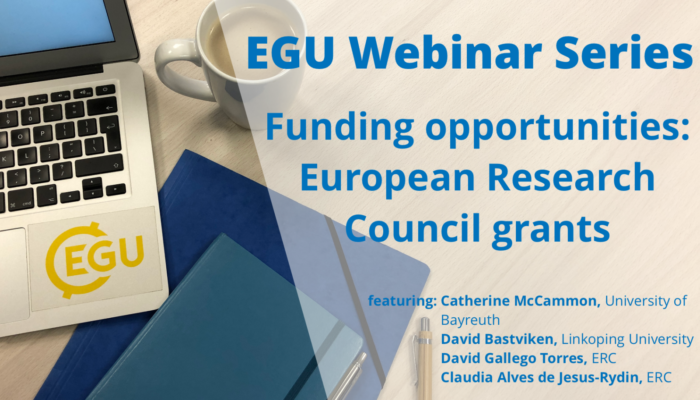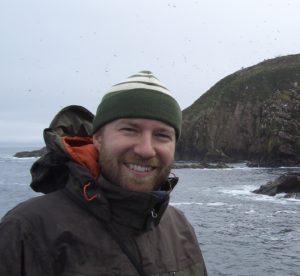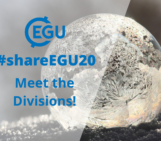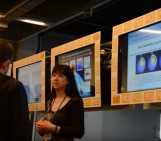
The European Research Council (ERC) is a leading European funding body supporting frontier research, investigator-driven, across all fields of science.The ERC offers various different funding opportunities with grants budgets of €1.5 to €3.5 million for individual scientists with the sole criterion for selection being scientific excellence. In October, the EGU hosted a webinar that highlighted some of the key features of ERC individual grants with a special focus on the Earth System Sciences panel (PE10). The session’s attendees were extremely engaged, asking more questions than could be answered in the limited amount of time! However, to provide answers to questions that weren’t able to be asked and expand on those that were, the speakers have kindly shared some of their responses in this blog post. So, whether you missed the live session or watched it, but were left with some unanswered questions, this is the blog post for you! If you’d like to watch or re-watch the session you can find it here.
David Gallego-Torres, European Research Council Executive Agency
David Gallego-Torres is a Project Advisor within the ERC’s Computer Science, Engineering and Earth System Science sector. He moderated the webinar and is providing his answers on behalf of the ERC.

David Gallego-Torres
Can I remain in my native country while receiving an ERC grant if it is outside of the EU?
The host institution must be established in an EU Member State or Associated Country. The minimum working time in the selected host institution is 50%. Minimum time dedicated to the ERC project varies: 50% for Starting Grants, 40% for Consolidator Grants, and 30% for Advanced Grants.
If the proposal is mostly Principal Investigator (PI) driven, what is the expected role of the host in EU institution?
Host institutions must provide appropriate conditions for the Principal Investigator to independently direct the research and manage its funding. The host institution must ensure that the Principal Investigator is able to apply for funding independently; manage the research and the funding for the project and make appropriate resource allocation decisions; publish independently as main author and include as co-authors only those who have contributed substantially to the reported work; supervise the work of the team members, including doctoral candidates or others; have access to appropriate space and facilities for conducting the research; and meet the time commitments described in the grant agreement.
After the approval of a proposal, am I forced to develop my project at the original host institution or I can change my plan?
You can change host institution, but not the research plan (although minor adjustments may be made, if duly justified and subject to approval).
Is it possible to request to exclude potential reviewer?
Yes, it is possible to exclude up to 3 reviewers.
What happens if my project is blocked due to COVID-19?
At present, the ERC is allowing up to 12 months extension of running projects due to COVID-19 pandemic and consequent mobility restrictions
Catherine McCammon: University of Bayreuth and former PE10 Panel Member

Catherine McCammon
Catherine McCammon is an expatriate Canadian geoscientist based at the University of Bayreuth in Germany since 1990. She has evaluated hundreds of proposals for Earth System Science (PE10) since 2014, both as panel member and external reviewer, and in 2020 she served as Starting Grant panel chair.
In your opinion, what is the ideal number of collaborators for an ERC Grant? And how important is the team’s diversity (e.g. in terms of nationality, gender, career stage)?
The simple answer is that there is no ideal number of collaborators, since it depends on many factors. For example, if the project requires expertise beyond the PI’s competence, it makes sense to recruit collaborators in these areas. On the other hand, too many collaborators may raise concerns about whether the PI is really in the driver’s seat, or if they have the capacity to manage such a large group. Ultimately it comes down to communicating clearly why the collaborators are needed and how they contribute meaningfully to the project.
Regarding diversity, there are no boxes that get ticked during the ERC evaluation process, but that doesn’t mean it’s not important. Let’s not forget the central role that diversity plays overall in science and innovation.
Once I’ve submitted a proposal, how long does it usually take to receive an answer from the ERC?
The evaluation timeline is decided well before proposals are due, which includes setting the dates of panel meetings where proposal ranking takes place. In my experience the candidates are notified quite promptly once all of the administration is complete.
Does asking for too much funding kill the project? Or are expensive parts of the project cut and the rest granted?
Panel members don’t see the budget at step 1, so that is not an evaluation criterion. At step 2 budget does not play a role until the final stage after highly ranked proposals have been identified. Here it’s true that extra funds may be cut if their importance to the project is not clearly justified.
David Bastviken: Linkoping University and ERC Grantee Consolidator Grants

David Bastviken
David Bastviken currently leads the ERC Consolidator Grant METLAKE, at Linköping University, Sweden. He has also been a non-successful ERC applicant and values the lessons gained from this experience.
How consistent is the feedback given by reviewers of ERC grants from year to year?
From my proposals, getting comments from seven or more reviewers, it was clear that reviewers, like all humans, have different perspectives and opinions. While they shared some views, other comments differed. Therefore, consistent feedback may not be expected. I think the challenge is to write a proposal that all reviewers find interesting and solid enough regarding the vital core of the project, so that the critical comments differing among reviewers (which will likely always exist) does not undermine the vital aspects of the project.
Does asking for too much funding kill the project? Or are expensive parts of the project cut and the rest granted?
I thought a lot about this. My project relied on expensive equipment and with more funding for this I could have done more. However, I realised that extra equipment funding was not vital for the project and I could do a very good job also without such funding. Therefore, I decided to not apply for extra money as I interpreted the aim of this opportunity to enable projects that would not be possible without extra equipment funding.
Money is limited and it is good for science as a whole, for ERC, and for society to be able to fund as many projects as possible, and if all applied for extra funding even when not necessary this would reduce the number of ERC grants. The original size of ERC grants is already very generous and we need to show modesty and respect for tax payers supporting our research and not just ask for more unless critically needed and well justified.
We hope that you found these answers compelling! Thanks once again to the speakers, as well as all the participants who asked such interesting questions! If you’d like to watch or re-watch the session you can find it here.




